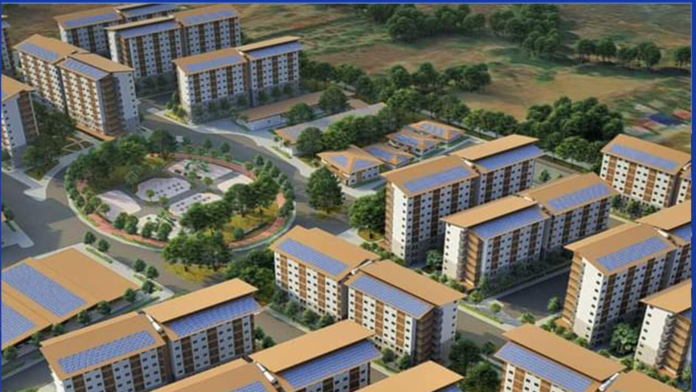The Senate Committee on Urban Planning, Housing and Resettlement on Monday expressed its full support to the passage of pending measures seeking to institutionalize the Pambansang Pabahay Para sa Pilipino (4PH) Program of President Ferdinand R. Marcos Jr.
Senate Bill Nos. 2409 and 2108 by Senators JV Ejercito and Christopher Lawrence Go, respectively, seek to institutionalize the program that aims to address the country’s 6.5 million housing backlog by building one million housing units annually until 2028.
In his opening statement, Ejercito expects 4PH to enable the government to address the housing backlog in the country.
“Anuman pong programa ng ating pamahalaan na maaaring makapagbigay daan upang mapaliit ang housing backlog at tuluyang wakasan ang kawalan ng tahanan sa Pilipinas ay lubos po nating sinusuportahan (Any program of our government that can pave the way to reduce the housing backlog and finally end homelessness in the Philippines, we will fully support),” Ejercito said.
“Maliwanag po sa atin na isa lamang ito sa maraming pamamaraan at pagsisikap ng ating gobyerno para tugunan ang kakulangan sa disenteng pabahay (It is clear to us that this is just one of the many methods and efforts of our government to address the lack of decent housing).”
Last year, President Marcos issued Executive Order No. 34 declaring the 4PH Program as a flagship program of the government and directed all government agencies to list all suitable lands for the program.
Ejercito and Go believed that institutionalizing the 4PH Program would ensure “consistent and sustainable funding” for affordable and decent housing for underprivileged and homeless citizens.
Under the two measures, the Department of Human Settlements and Urban Development (DHSUD) will execute the 4PH Program by constructing one million housing units per year; prioritizing the lowest 30 percent income decile and low wage earners; implementing innovative strategies for accessible housing finance and affordable units for the target beneficiaries; empower and assist local government units as key project proponents in executing housing initiatives; and promote and reward private sector involvement in the implementation of the program. (PNA)
Photo credit: Facebook


